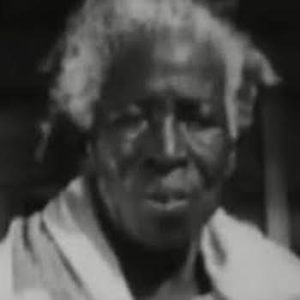
Redoshi "Sally" Smith
*The birth of Redoshi is celebrated on this date in c. 1848. She was a 12-year-old Black West African girl kidnapped, enslaved, and taken to the United States.
Redoshi lived in a village in West Africa, in today's Benin. Her village was attacked in a raid by the Dahomey people, who killed her father. She was sold to Americans illegally, as more than 50 years earlier, the U.S. had abolished the importation of slaves. White-American businessman Timothy Meaher commissioned the captain and ship for a slave-buying mission to Ouidah, a port city, and transported by the slave ship the Clotilda to Alabama.
The American ship captain was forced to marry another captive, a man from West Africa who was already married and spoke a different language. Her husband was later called "Uncle Billy" or "Yawith". After the ship reached Mobile, Alabama, where Meaher lived, Redoshi was sold with her husband to Washington Smith, a planter in Dallas County, Alabama, about 15 miles west of Selma. Smith owned a plantation in Bogue Chitto. He also had a townhouse in Selma and was among the founders of the Bank of Selma. He renamed her "Sally Smith" and put her to work in the fields and sometimes at his house. Two of the Dahomey people who had kidnapped Redoshi and her kinfolk were also taken captive and transported to North America on the same slave ship. They worked alongside Redoshi in the fields, and she never forgave them.
After emancipation, Redoshi (aged 17) and her husband Yawith lived on the plantation, working as sharecroppers. Washington Smith died in 1869, but his wife continued to run the plantation. Together with advanced merchants and others, the planters essentially controlled the finances of the sharecroppers and settled annual accounts to their benefit. Redoshi was one of the last surviving victims of the Middle Passage. She and her husband survived in poverty; they may have owned land in or near Bogue Chitto. The couple had raised their daughter together.
During this time, she lived with others from her journey in Africatown, Alabama. Although she adopted Christianity, Redoshi also practiced her African religious traditions and taught them to her daughter. Redoshi survived slavery and the American Civil War, Jim Crow laws, and lived into the Great Depression.
She lived long enough to become acquainted with people active in the American Civil Rights movement; she was friends with Matilda McCrear, the oldest known survivor from the Clotilda. Redoshi is the only known female transatlantic slavery survivor to have been interviewed on film. The name "Redoshi" is unknown in West Africa, though 14 similar names appear in the African Origins database. Yawith died in the 1910s or 1920s; Redoshi died in 1937. Her daughter was listed on the U.S. Census and marriage documents as "Leasy" and had children.